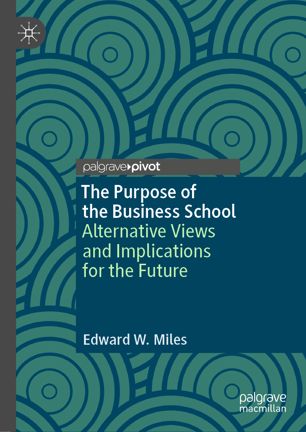

Most ebook files are in PDF format, so you can easily read them using various software such as Foxit Reader or directly on the Google Chrome browser.
Some ebook files are released by publishers in other formats such as .awz, .mobi, .epub, .fb2, etc. You may need to install specific software to read these formats on mobile/PC, such as Calibre.
Please read the tutorial at this link. https://ebooknice.com/page/post?id=faq
We offer FREE conversion to the popular formats you request; however, this may take some time. Therefore, right after payment, please email us, and we will try to provide the service as quickly as possible.
For some exceptional file formats or broken links (if any), please refrain from opening any disputes. Instead, email us first, and we will try to assist within a maximum of 6 hours.
EbookNice Team

Status:
Available4.8
18 reviewsIn the mid-20th century, university-based business schools re-oriented themselves to increased alignment with the preferences of the university and decreased alignment with the preferences of business. This re-alignment has caused multiple observers to question the effectiveness of current-day business schools. For example, recent discussions have lamented that business schools are engaged in research that does not influence the practice of business.
This book engages these debates, arguing that all judgments about the effectiveness of business schools are rooted in assumptions about what the purposes of the business school appropriately are and that many of those assumptions are unstated and not subjected to debate. The author weaves a unique blend of complexity theory, philosophy of science, and the nature of professions to articulate those goals and assess the effectiveness at meeting them.
The book traces parallel discussions regarding the purpose of the university in the writings of Aristotle and Wilhelm von Humboldt and ties those discussions to current debates. This book will inform business faculty and administrators of the degree to which university-based business schools are balancing multiple purposes which include discovery of knowledge, creating knowledge that informs the practice of business, training professionals, and instilling ethical principles in its training of those professionals.